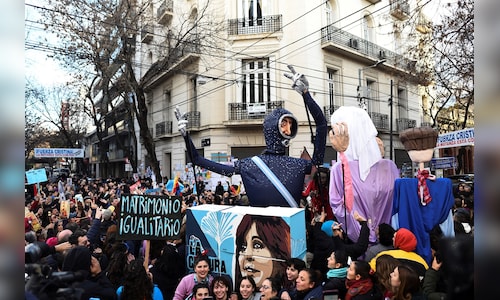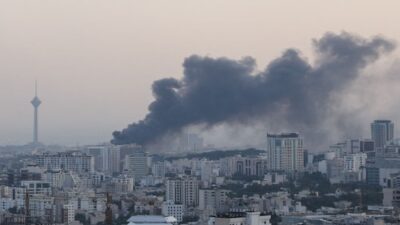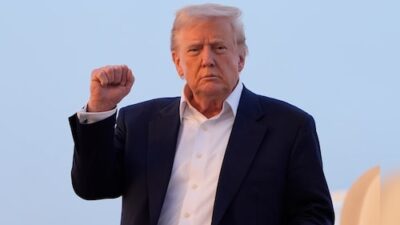The figure depicted is one of Argentina’s most influential political figures of the past two decades – leading opposition leader, former first lady, and two-time president Cristina Fernandez de Kirchner, who was placed under house arrest last week under a six-year sentence for corruption.
This marks a formal end to the political career of the 72-year-old, a polarizing populist whose expansive government model is now being dismantled by the “chainsaw” austerity measures of libertarian President Javier Milei. The sentence additionally prohibits Kirchner, who had intended to run for Buenos Aires province’s legislature, from holding public office.
That second-floor balcony – the one place from which Kirchner can now mobilize her supporters since her city apartment lockdown – has become a focal point for her Peronist left backers, highlighting her as a symbol of resistance against Milei.
”It gives Cristina’s leadership political clout that she was losing,” commented Camila Perochena, a historian at the Universidad Torcuato Di Tella in Buenos Aires. ”This gives her extra life.”
Kirchner’s house arrest has drawn tens of thousands of protesters into the streets of Buenos Aires in recent days, infusing much-needed energy into her movement, which has been grappling with internal rifts and disillusionment following the loss in the 2023 presidential election to Milei.
”This puts her right in the center of the political stage,” stated Juan Grabois, a notable leftist social leader and close ally of Kirchner, to Reuters.
’WE WILL RETURN’
In the short term, experts suggest that the corruption sentence related to roadway contracts may benefit Kirchner, though it remains uncertain whether she can effectively exert influence without attending rallies and events in person.
Last Wednesday, while under house arrest, Kirchner’s voice resonated from large speakers in the central Plaza de Mayo, addressing crowds that had marched through downtown Buenos Aires.
”We will return, and even more so, we will return with greater wisdom, more unity, and more strength,” she declared in a pre-recorded message to her supporters. ”From wherever I am, from any front, I will do everything I can to be with you.”
Among those listening in the Plaza was Andrea Albarracin, 35, a member of Kirchner’s Peronist Justicialista Party.
”I don’t perceive a Cristina who has been defeated,” she remarked.
Maria Teresa Garcia, secretary general of the party, expressed to Reuters that Kirchner would continue to lead because ”there isn’t another person who can raise her voice like Cristina.”
’THEY ARE COMING FOR CRISTINA’
Many who recently gathered outside of Kirchner’s home echoed her claims that her detention – solidified by the Supreme Court this month after an original 2022 sentence when she was vice president – is a politically motivated act of revenge from the right.
”They’re targeting Cristina because she embodies everything that the concentrated powers of this country detest,” stated supporter Christopher Loyola, who advocates for the Peronists’ extensive state spending on education, health, and science.
This focus on big government has enabled Argentina to develop one of the strongest social safety nets in the region and bolstered the public sector; however, excessive money printing to sustain these programs has contributed to years of soaring inflation and significant deficits.
The night Kirchner’s sentence was upheld, Loyola braved the cold to demonstrate his support for her, as she still commands around 30% popular backing, according to local polls, providing her with influence over the broader Peronist coalition.
Last week, large banners outside Kirchner’s residence proclaimed “Always with Cristina.” Merchants sold T-shirts featuring Kirchner’s image, while supporters danced to a brass band playing “Muchachos,” Argentina’s anthem from the last soccer World Cup.
Yamila Perdomo, 41, a tour guide with an Argentine flag draped over her back, caught sight of Kirchner on her balcony waving to her supporters.
”If this can happen to the most powerful woman in our country, what protections do ordinary citizens have?” Perdomo questioned. ”We are here in defense of democracy.”



